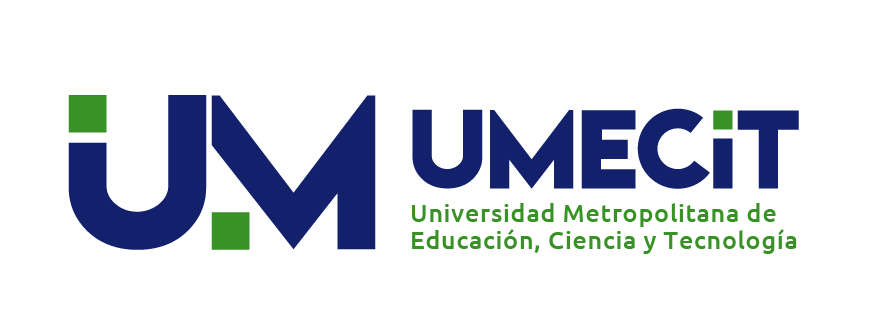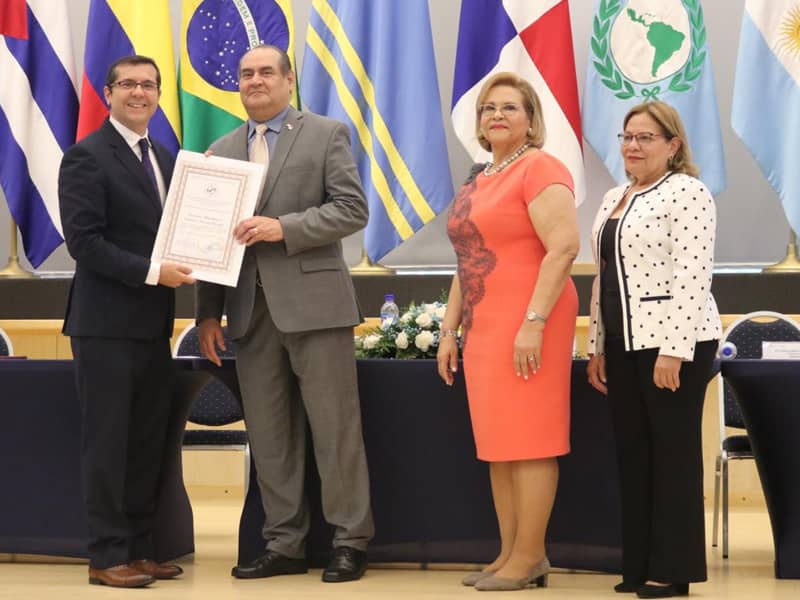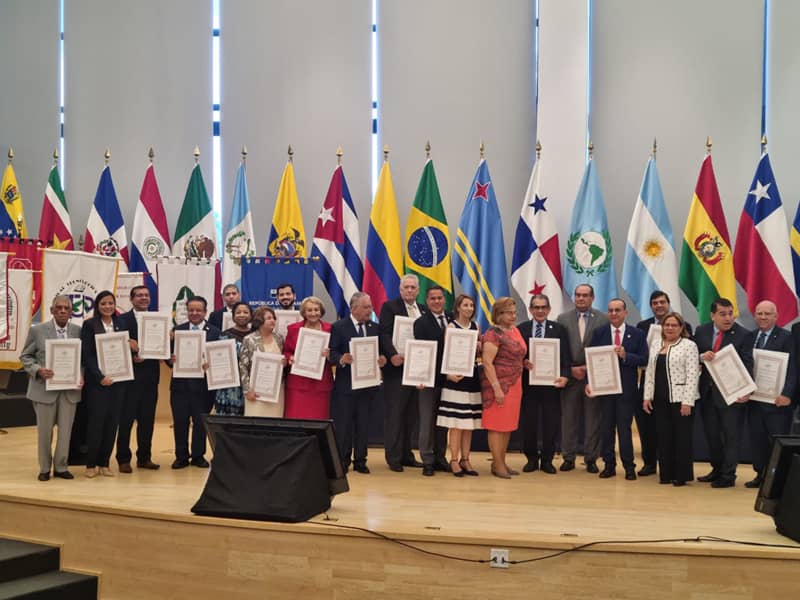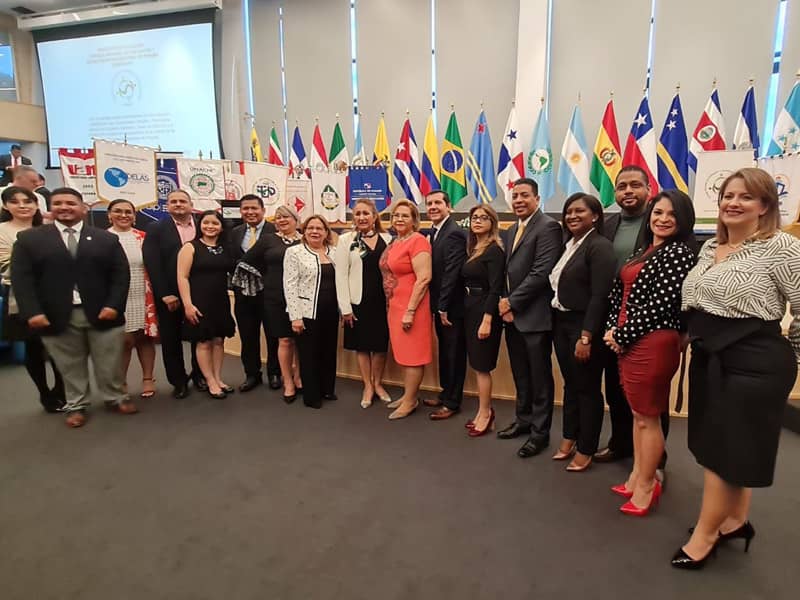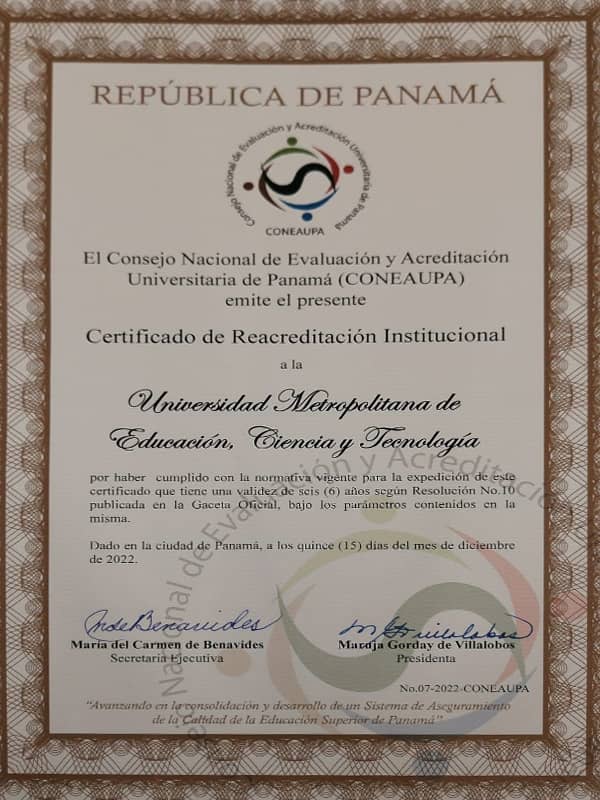UMECIT officially receives its highest rating for Institutional Reaccreditation
This December 15, the act of delivery of Institutional Reaccreditation Certifications to official and private universities, by the government, was carried out. In this way, the National Council for University Evaluation and Accreditation of Panama, gave the Metropolitan University of Education, Science and Technology - UMECIT - the certification for 6 years, the highest qualification granted to an academic institution.
Within the framework of the event, Maria del Carmen Terrientes de Benavides, Executive Secretary of CONEUPA, affirmed that the level of quality of education in the country is on the rise, by establishing a culture of quality within the institutions, which will benefit the country.
“My congratulations to UMECIT, it is a university that works hard and has reached the accreditation process with one of the highest scores”,said Terrientes de Benavides.
Within the framework of the event and on behalf of the participating official universities of Panama, engineer Hector Montemayor, rector of the Technological University of Panama, stated that continuous improvement is important "to guarantee Panamanian youth that they can follow their study plans and become excellent professionals for the development of this country”.
For his part, Joaquin Villar, president of the Council of Rectors of Panama, on behalf of private universities, expressed his satisfaction with this process to improve the quality of higher education.
"The country's education has climbed a step in the long process of its development, from that, our first university called the Royal and Pontifical University of San Javier created and founded in 1749, to our current institutions that seek with new technologies, the information and communication to achieve new paths towards the future”, said Villar.
José Pio Castillero, Administrative Vice Minister of Education and President of the Council asked for applause for all the attending universities who successfully underwent the process, pointing out that this exercise focuses on important axes, such as coverage, quality, efficiency and management. .
“Improving the quality of education is a commitment of all: the State, the productive sector, students and all citizens. Our country has made important achievements in education, we have reached levels of coverage at a higher level, however we must continue advancing”,Castillero said.
Coneaupa is a body attached to the Ministry of Education that supervises all legally established universities in the country. A university that operates abroad must comply with the regulations that apply in its country of origin, therefore, the recognition of titles issued under this condition must be managed in accordance with established legal procedures.
A total of 23 universities, in 2012, obtained their certification, on this occasion they achieved their re-creation under the highest standards of quality and excellence. This is important, since international titles are recognized, the continuous improvement of quality hand in hand with Coneaupa and the creation, within each institution, of a culture of quality. The recommendations of the peers are mandatory.
The process to recognize or certify the quality of an institution, or of an educational program, is based on a previous evaluation of these, which is carried out by representatives of Coneaupa and external peers. Accreditation –or certification– recognizes the quality of the programs or of the accredited institution.
Coneaupa began the process of accreditation and re-accreditation in 32 higher education centers operating in the country, with the participation of internal and external peers, in order to analyze the administrative and academic work carried out by each one.
Institutional accreditation had been stagnant for two years, the current administration reactivated it, developed the matrices, established the agreements and commitment with the universities to resume the process that certifies compliance with the project of an institution and the existence, application and results of effective mechanisms self-regulation and quality assurance of education.

